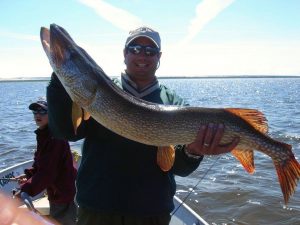Casting into the Future: The Critical Role of Fishing


From ancient times, when humans first scooped fish from the water using their hands, to modern anglers equipped with sophisticated gear, fishing has been more than a mere means of survival. It represents a vital activity deeply embedded in societies’ cultural, economic, and environmental fabric worldwide. This article explores the multifaceted importance role of fishing, highlighting its role in sustenance, financial stability, recreational value, and ecological balance.
A Source of Sustenance
Fishing has always been a crucial source of nourishment. Globally, it provides a significant amount of the world’s protein intake, especially in developing countries where seafood may be the most affordable or accessible source of animal protein. Fish are rich in high-quality protein and provide essential nutrients, including omega-3 fatty acids, vitamins, and minerals. This nutritional value makes fishing indispensable for food security, particularly in coastal and riverine communities.
Economic Impact
Fishing drives substantial economic engines around the world. It supports millions of jobs across various sectors, including catching, cultivating, processing, and selling fish. In 2018, the fishing and aquaculture sector employed over 59 million people globally, per the Food and Agriculture Organization (FAO). The industry also plays a critical role in the economies of many developing countries, contributing to livelihoods and economic development. Beyond direct employment, fishing fosters related businesses such as boat building, equipment manufacturing, and tourism, creating an expansive economic ripple effect.
Recreational and Cultural Significance
Recreationally, fishing is a cherished pastime that transcends age and cultural barriers, promoting well-being and connection with nature. It offers a peaceful escape from the daily grind, providing mental and physical benefits such as stress reduction and improved concentration. Moreover, fishing traditions are woven into the cultural tapestry of numerous communities, celebrated through festivals, and maintained across generations through shared knowledge and practices. These traditions enhance social cohesion and offer a sense of identity and continuity.
Sustainable Fishing and Conservation
Environmentally, sustainable fishing practices are vital in maintaining healthy fish populations and aquatic ecosystems. Responsible fishing helps ensure that oceans and freshwater habitats can continue to support diverse biological communities, which are crucial for ecological balance. For example, maintaining a balanced fish population can help keep algal blooms in check, supporting water quality and the health of coral reefs.
However, the significance of fishing also entails the responsibility to address overfishing and environmental degradation. Overfishing can lead to the depletion of critical species, disrupting food chains and weakening marine and freshwater ecosystems. Practices such as catch-and-release, size limits, and seasonal restrictions are part of ongoing efforts to combat these challenges, aiming to preserve fish stocks for future generations.
The Role of Aquaculture
As demand for seafood has increased, aquaculture, or fish farming, has become an increasingly important part of the industry. Aquaculture allows controlled breeding, rearing, and harvesting of plants and animals in all water environments. It is seen as a solution to meet the growing demand for fish without overexploiting natural water bodies. By 2030, aquaculture is expected to provide almost two-thirds of the global fish consumption, as predicted by the FAO.
The Future of Fishing
Fishing’s importance is likely to grow as the global population increases. Ensuring its sustainability is critical for food security and the overall health of the planet’s marine and freshwater environments. Innovative practices such as improved fishery management, habitat restoration, and sustainable aquaculture development can help maintain the delicate balance of our aquatic ecosystems.
Why We Must Keep Casting
The importance of fishing is evident: it feeds millions, supports economies, fosters recreational activities, and maintains ecological balance. As we move forward, the challenge will be to manage this vital activity sustainably to ensure that future generations can continue to benefit from the bounty of our waterways. Whether for subsistence, employment, or simply the joy of catching a fish, the reasons we cast our lines are as deep as the waters from which we fish.

